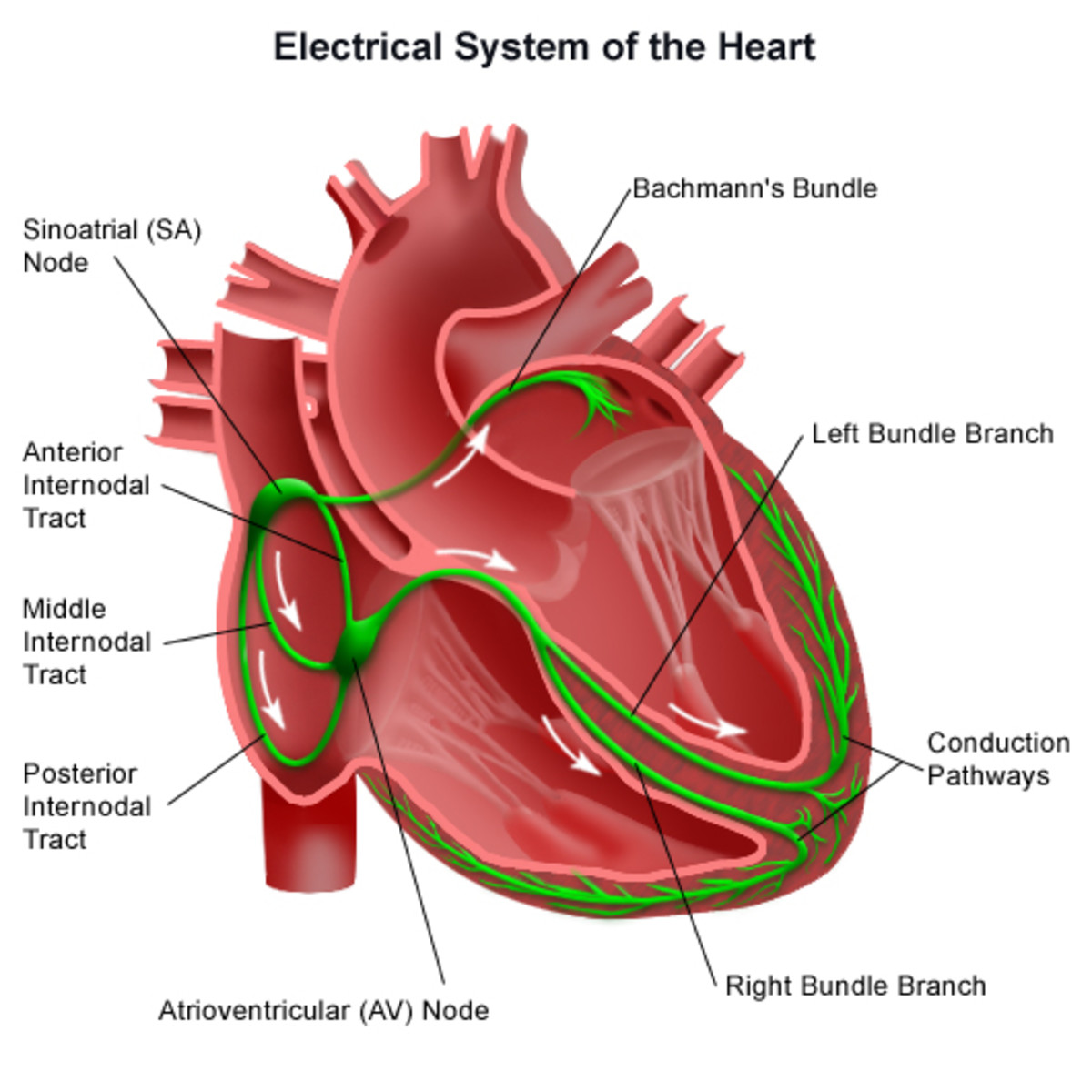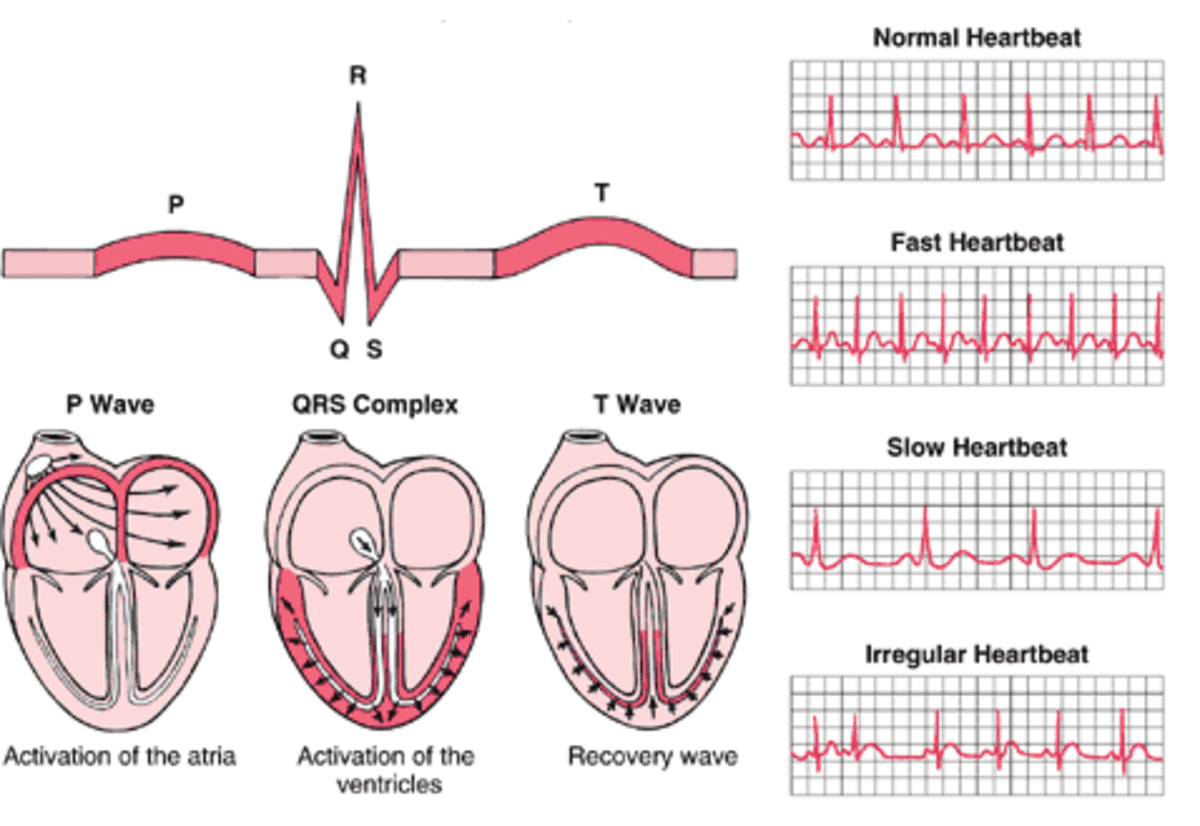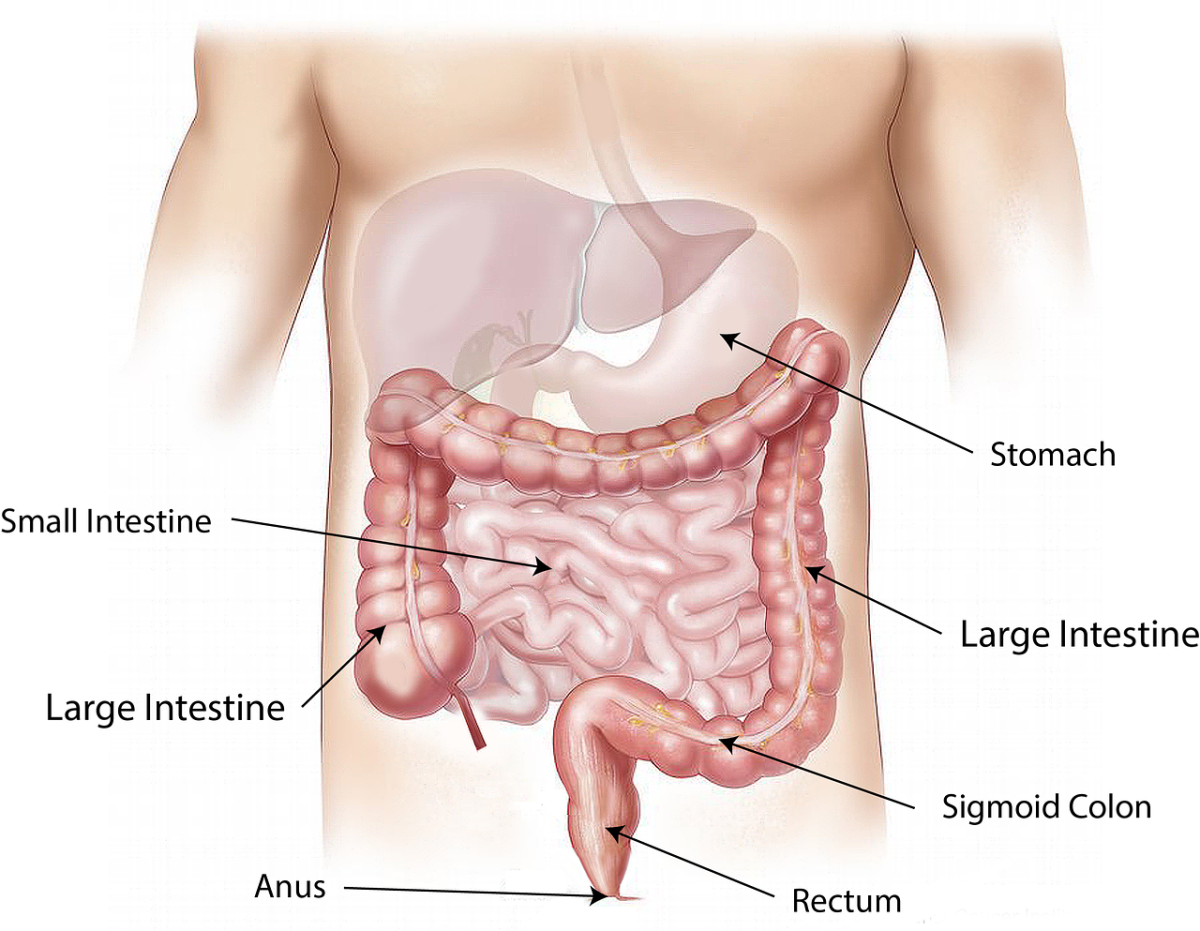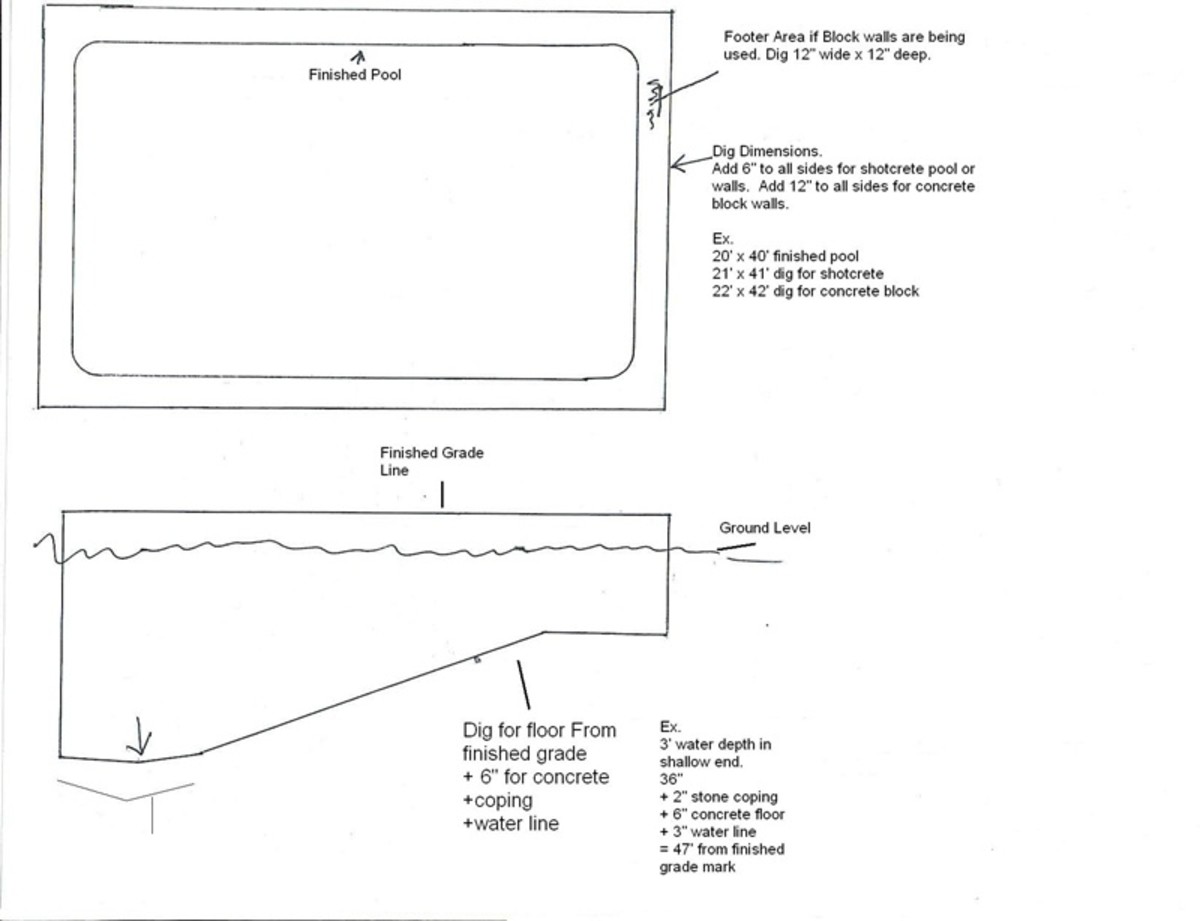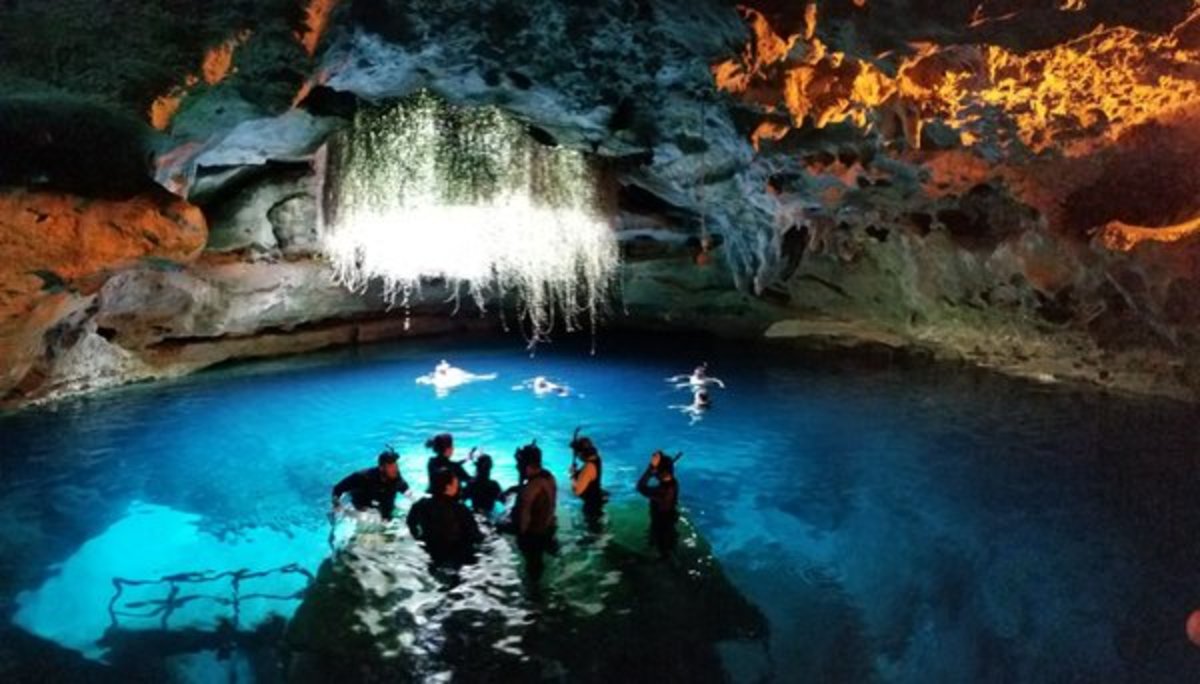- HubPages»
- Sports and Recreation»
- Individual Sports»
- Water Sports
Introduction to Freediving
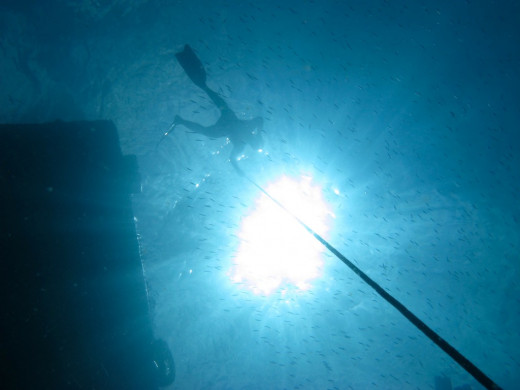
Definition of Freediving
Freediving or Apnea Diving is staying under the water on one single breath. The body and mind can be adapted enormously to increase both the depth and time which a human can stay in the deep blue. As with all sports there are several different ways how to perform freediving. The following disciplines are internationally recognised:
- Constant Weight
- No Fins
- Free Immersion
- Variable Weight
- No Limits
Although it seems pretty superhuman to hold your breath for 2 or 3 minutes or even longer, there is no special prior knowledge or physical condition mandatory. Every one is able to freedive. The only difference is to know how to do it.
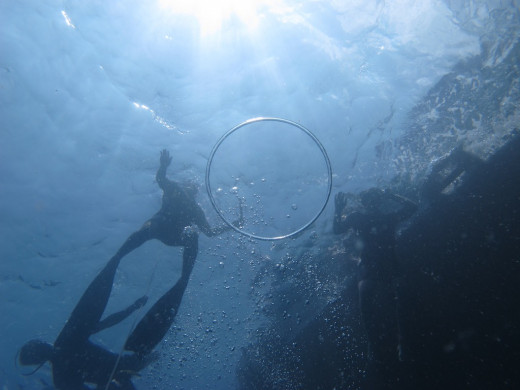
What makes Freediving special?
The interesting thing about freediving is, that it is a very challenging progress. Not just for your body but also for your mind. Every normal human being considers breathing as the most automated process in the world. In fact, most of the people don't even think about breathing during the day. It happens how it happens, right? Not entirely. Breathing is an action which can be controlled and improved voluntarily. Control your breath and you control your mind and feelings. That sounds pretty spiritual I know. I'll prove that it isn't.
Well trained Freedivers achieve diving depths of more than 100m without technical gadgets like sleds or whatsoever. Breath holds of over 7 minutes are possible for most of them. All they did was training their bodies, lungs and mind to meet the requirements underwater. Every newcomer to freediving is amazed how rapidly the behaviour of the body is changed once he has learned how to hold his breath correctly and listen to the body's reactions.
Because of our origin and evolution the human body has incredible features to adapt to aquatic environment. If your body recognises that your face is submerged with water, it starts triggering the Mammalian Dive Reflex. Because of that we are able to hold our breath longer, dive deeper and become even more relaxed in doing so.
As you get more experienced with your breathing you gain more insights of how to control your mental state with it. Remember what you are doing when you want to calm down? Right, you breathe in a continuous and steady manner. The more you are aware of your breath the more control you have about your mental state.
The difference between SCUBA and Freediving
Well of course the additional equipment like tanks and Buoyancy Jackets are not necessary of course.
How can you go up and down so often? I thought you have to do safety stops?
Fortunately not otherwise we wouldn't be able to do what we do. The only reason why you have to do a safety stop in diving is because you were inhaling compressed air trough a regulator. Think of your lungs as a balloon. If you take the balloon down with you to 10m the pressure of the water has decreased the volume of the air inside about a half. The same happens if you just take on single breath on the surface. As a SCUBA Diver you would have increased the volume again by adding more air into the balloon. Once you go up to the surface, the air will expand until the balloon, well, explodes. That's why you slowly ascend in SCUBA to slowly change the air volume as well as getting rid of nitrogen in your body. But that's a whole other story.
In freediving we don't need all that. We take our final breath, dive down and come back up as we like the whole day long. And the best, it is for free and you don't need to pay tank refills.
You have to be superspecial trained to freedive!
Definitely not. If you don't believe it take a course in Freediving and convince yourself.
I can't even hold my breath for a minute, how should I ever be able to go down to 12m?
First of all, it doesn't matter how deep you are able to dive. But you would be surprised about your personal breath hold results. Most people who are unfamiliar with freediving take a breath and then start holding their breath. That's not entirely wrong but definitely not the best way. The modern freediver learns that he can prepare his body to breath holds by oxygenating his blood first. This is simply done by a series of breathe ups. After that the person takes an entirely full breath, flooding his lungs completely with fresh oxygen and then remains relaxed to hold his breath. That way it is much more comfortable and easier to reach 2 or even 3 minutes easily, even for beginners.
External Sources
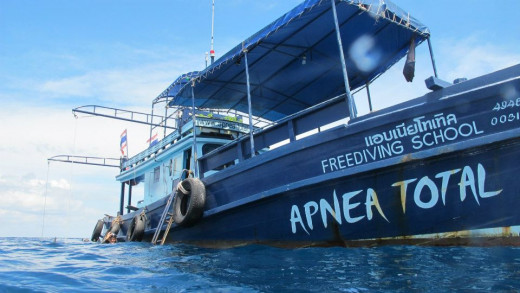
Mammalian Dive Reflex
All mammalians have it, even human beings. Of course, the underwater animals benefit from much more powerful adaptions of their bodies, but we are not far behind. The Mammalian Dive Reflex helps us to survive in the deep blue and supports our actions. It is triggered by either holding your breath or submerge the face with water. The following things are going on in our body:
- Bradycardia
- Peripheral Vasoconstriction
- Blood Shift
Bradycardia
It is extremely powerful and helpful at the same time. When the Mammalian Dive Reflex is triggered, Bradycardia decreases you heart rate tremendously. As your heart is a big muscle it burns oxygen. And because you hold your breath, your body wants to use that oxygen as efficient as possible. Therefore, the heart rate drops, less oxygen is burned and you can dive longer.
Peripheral Vasoconstriction
The blood vessels get constricted and precious oxygenated blood isn't going all the way to your limbs and extremities. The deeper you get the more the blood is centred in your core where your body really needs it. While diving you may feel a tingling sensation in your feet. That's the Vasoconstriction kicking in.
Blood Shift
Until a couple of years ago, scientists believed that the human body isn't able to dive deeper than the residual volume of the lungs could stand the pressure. Then some guys showed up and dove down to 70, 80 and now more than 240m. A point were the lungs must have been compressed to the size of a plum, or even smaller. Well, that was what they believed. But the human body is smarter. Before it gets to the point where the lungs wouldn't be able to handle the water pressure, blood is filling the capillaries of the lungs. As liquids aren't getting compressed like air the lungs stop being compressed and the diver can continue going down. This new environment has to be tested and trained for, of course.
Freediver No Fins
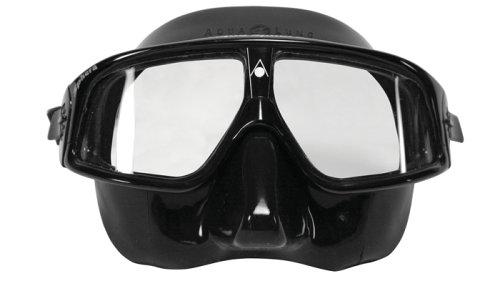
Freediving Equipment
Freediving is all about freedom and not needing equipment. Although that's right the modern freediving has started developing some special pieces of equipment that helps the apneist to dive deeper and being more efficient.
- Freediving mask and snorkel
- Wetsuit
- Freediving Fins
- Weightbelt
- Freedive Watch
All these parts are optional but nowadays more or less used by anybody. It is just much more comfortable to see something underwater as well as using powerful fin strokes to descend and ascend.

